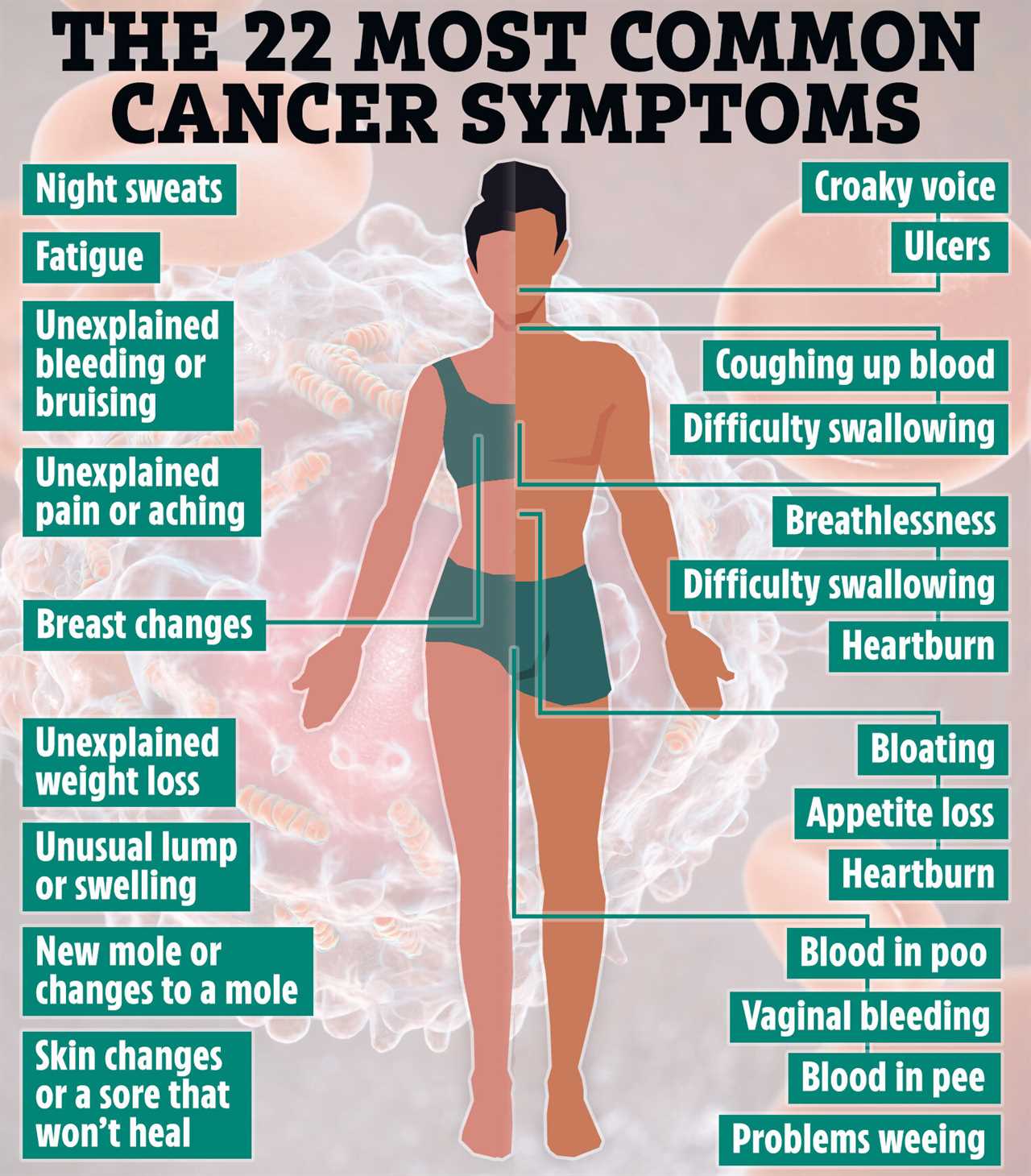
With over 200 different types of cancer, it's important to be aware of the signs and symptoms that may indicate the presence of the disease. Cancer Research UK (CRUK) has identified 22 of the most common symptoms to look out for. Detecting these early and seeking medical attention promptly can significantly improve your chances of survival, according to the charity.
1. Fatigue
Feeling excessively tired without a clear reason could be a sign that something is wrong. Fatigue is often associated with blood cancers like leukaemia, lymphoma, and myeloma, as well as breast and prostate cancer.
2. Aches and Pains
Unexplained or persistent aches and pains may be a symptom of cancer. The location of the pain can sometimes indicate the type of cancer, but it may also suggest that the disease has spread.
3. Bruising
While it's normal to have bruises if you're clumsy, unexplained bruising can be a cause for concern. It is a common symptom of leukaemia, lymphoma, and myeloma.
4. Night Sweats
Experiencing heavy or persistent night sweats, particularly if they are not related to medication, menopause, or anxiety, can be a sign of several cancers, including leukaemia, lymphoma, kidney cancer, and advanced medullary thyroid cancer.
5. Weight Loss
Significant weight loss without trying could be a warning sign of cancer. As many as 40% of people diagnosed with cancer report experiencing weight loss before their diagnosis.
6. Coughing
While coughing is common, especially during the winter months, a persistent cough or coughing up blood may indicate lung cancer.
7. Lumps or Swelling
Unusual lumps or swelling anywhere on the body should be taken seriously. Although they can sometimes be caused by sports injuries, persistent lumps or swelling, especially in specific areas, should be investigated further.
8. Appetite Loss
Losing your appetite could be a red flag for cancer. Stomach, pancreatic, bowel, and ovarian cancer can all put pressure on the stomach and cause a loss of appetite.
9. Mole Changes
If you notice a new mole or changes in the size, shape, or color of an existing mole, it could be a sign of skin cancer, particularly melanoma.
10. Skin Changes
Changes in the skin, such as sores, bumps, or growths that won't heal, can indicate skin cancer. Using the ABCDE checklist can help monitor these changes.
11. Heartburn
Persistent indigestion or heartburn can be a symptom of certain cancers, including oesophageal cancer.
12. Croaky Voice
If you have a croaky or hoarse voice for more than three weeks, it could be a sign of laryngeal, throat, or lung cancer.
13. Ulcers
Mouth ulcers that don't heal can be a common symptom of mouth and oropharyngeal cancer. If they persist for more than three weeks, it's important to see a doctor or dentist.
14. Difficulty Swallowing
Difficulty swallowing, accompanied by pain, burning sensation, or tightness, can be a sign of oesophageal, mouth, or throat cancer.
15. Breathlessness
Feeling constantly breathless, even without exertion, can be a primary symptom of lung cancer or cancer that has spread to the lungs.
16. Breast Changes
Changes in the breast area, such as new lumps, changes in size or shape, nipple discharge, or swelling under the armpit, should be examined by a GP as they could be signs of breast cancer.
17. Bloating
Persistent bloating lasting up to three weeks is one of the most common early signs of ovarian and bowel cancer.
18. Bowel Habit Changes
Changes in bowel habits, such as softer or looser stools, constipation, or increased frequency, should be monitored. If these changes persist for more than three weeks, it's important to see a GP.
19. Blood in Poo
Blood in the stool, or black/dark red stools, can be a sign of bowel cancer and should be checked out by a medical professional.
20. Vaginal Bleeding
Unexpected vaginal bleeding, including bleeding after sex, between periods, or after menopause, can be an indicator of womb or uterus cancer.
21. Blood in Pee
Blood in the urine, even if painless, is the most common symptom of bladder cancer and requires investigation.
22. Problems Weeing
Difficulty urinating can also be a sign of bladder cancer and should not be ignored.
Remember, if you notice any changes in your health that are unusual for you or persist, it's important to contact your GP as soon as possible. Early detection can greatly improve the chances of successful treatment and survival.






